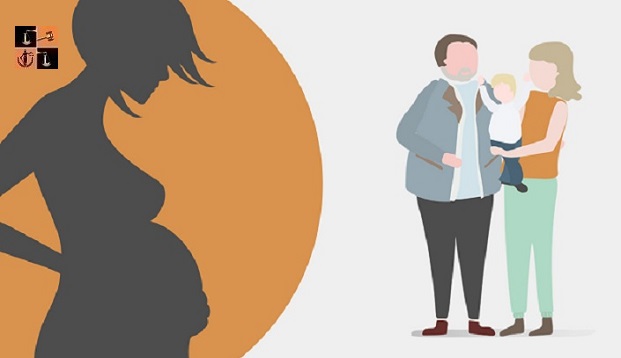The Centre has informed the Supreme Court that amendments to rules under the Surrogacy Act imposing restriction on married couples to get donor gametes is under “active reconsideration” following orders passed by the top court doubting the correctness of this condition while dealing with exceptional cases of married women unable to conceive due to medical conditions.
The bench of justices BV Nagarathna and Sanjay Karol was considering an application on Tuesday filed by 12 women challenging Rule 14(a) of the Surrogacy (Regulation) Rules, 2022.
This rule states medical indications necessitating gestational surrogacy allowing a woman to opt for surrogacy if she has no uterus or missing uterus or abnormal uterus (like hypoplastic uterus or intrauterine adhesions) or if the uterus is surgically removed due to any medical conditions such as gynaecological cancer.
The petitioners before the Court could not conceive due to diverse reasons not contemplated under the rules, which included auto-immune condition called APLA, Mayer RokitanskyKuster Hause syndrome which affects production of oocytes.
The bench asked additional solicitor general (ASG) Aishwarya Bhati if the Centre was considering the case of the petitioners as it was inclined to grant relief to 8 of the 12 petitioners about whom the district medical board under the Act certified their disability to reproduce.
ASG Bhati said, “I have written to the Ministry asking them to reconsider Rule 14(a) in the light of past orders of this Court. They (Centre) have referred it to the expert body under the Act which is under active consideration.”
The petitioners represented by advocate Mohini Priya had challenged the March 14, 2023, notification issued by the Ministry of Health and Family Welfare by which the use of donor gametes has been disallowed by an amendment brought in the Surrogacy Rules, 2022.
The amended rule in Form 2 appended to Rule 7 states, “Couple undergoing surrogacy must have both gamete from the intending couple and donor gametes is not allowed.”
In case of single woman, who is a widow or divorcee, undergoing surrogacy, she must use self-eggs while availing donor sperms.
On October 18 last year, the top court, while allowing women having medical condition that does not permit them to have eggs, had said, “When Rule 14(a) specifically recognises the absence of a uterus or any allied condition as a medical indication necessitating gestational surrogacy, the consent of the surrogate mother and the agreement for surrogacy in Form 2 appended to Rule 7 cannot mandate a condition contrary to Rule 14(a).”
The Court is already considering a challenge to the Surrogacy Act in a bunch of public interest litigations (PIL) filed by IVF specialist Arun Muthuvel along with several others who questioned several provisions under the Surrogacy (Regulation) Act and the ART (Regulation) Act for being discriminatory against men and women based on their age, marital status and sexual orientation.
Under the Surrogacy Act, the woman who was an “intending couple” had to be of the age of 23 and 50 years and as an “intending woman” she had to be Indian, a widow or divorcee aged between 35 to 45 years.
Such narrow definition kept out same-sex couples, members of the LGBTQ community, single women neither widowed nor divorced, single divorced women/widows less than the age of 35 or more than 45, single men, couples suffering from secondary infertility, among others.
The Court is yet to decide on these petitions even as it has taken up individual pleas by women seeking an exception under the Act.
The Court in its October 18 order said, “The amendment which is now coming in the way of the intending couple and preventing them from achieving parenthood through surrogacy, we find, is, prima facie contrary to what is intended under the main provisions of the Surrogacy Act both in form as well as in substance.”
The Court had observed, “When an intending woman avails of surrogacy naturally, she would have to use her own oocytes or eggs and donor’s sperm. Conversely, when the woman in the intending couple is unable to produce oocytes or eggs, then donor oocytes or eggs have to be made use of... In circumstances stated in Rule 14(a) for instance, the intending couple would necessarily have to have a surrogate child through donor’s oocytes because in such a condition, it is not possible for the woman to produce oocytes.”
This goes contrary to what is intended under Form 2 appended to Rule 7, the bench added.
Advocate Mohini Priya further informed the Court that Rule 14 is not comprehensive as it does not consider other factors like late age of marriage, change in lifestyle and environmental toxins as a cause for women failing to produce oocytes.
“About 70- 80% of women going for a surrogate baby would require egg donors for the same. The impugned notification dated March 13, 2023, thus strikes at the very root of the matter, by incapacitating those very women who require donor eggs the most. The amendment negates the very purpose of surrogacy.”
(Only the headline and picture of this report may have been reworked by the LatestLaws staff; the rest of the content is auto-generated from a syndicated feed.)
Source Link
Picture Source :


























